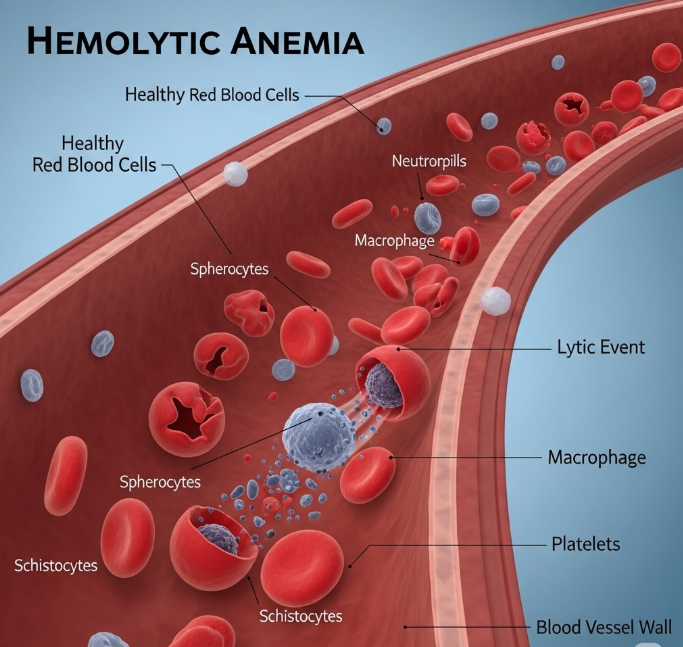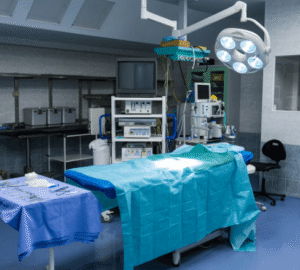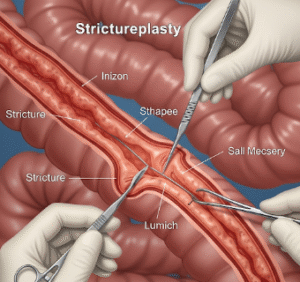Overview
Hemolytic anemia is a condition where red blood cells are destroyed faster than they can be produced, leading to reduced oxygen delivery in the body. In Korea, patients with hemolytic anemia receive advanced hematology care, including diagnostic testing, medication management, and specialized treatment for both acquired and hereditary forms.
What is Hemolytic Anemia?
Hemolytic anemia occurs when the lifespan of red blood cells is shortened, either due to autoimmune disorders, genetic defects, infections, medications, or exposure to toxins. The body cannot replace the destroyed cells quickly enough, resulting in anemia and associated symptoms.
Symptoms
- Fatigue and weakness
- Pale or yellowish skin (jaundice)
- Rapid heartbeat (tachycardia)
- Shortness of breath
- Dark urine
- Enlarged spleen (splenomegaly)
- Abdominal discomfort
Causes
- Autoimmune hemolytic anemia (immune system attacks red blood cells)
- Genetic conditions such as sickle cell anemia or hereditary spherocytosis
- Infections (e.g., malaria)
- Certain medications or toxins
- Mechanical destruction of red blood cells (e.g., artificial heart valves)
Risk Factors
- Family history of hemolytic anemia
- Autoimmune disorders (lupus, rheumatoid arthritis)
- Certain medications or chemical exposures
- Previous blood transfusions
- Chronic infections
Complications
- Severe anemia requiring transfusions
- Heart problems due to reduced oxygen supply
- Enlarged spleen or liver
- Increased risk of gallstones
- Fatigue and reduced quality of life
Prevention
- Genetic counseling for hereditary forms
- Careful monitoring when taking medications known to cause hemolysis
- Prompt treatment of infections
- Regular blood tests for individuals at risk
- Avoid triggers in autoimmune hemolytic anemia (certain drugs or infections)
Treatment Options in Korea
Diagnosis
- Blood tests: Complete blood count (CBC), reticulocyte count, bilirubin levels
- Peripheral blood smear to observe red blood cell morphology
- Coombs test to detect autoimmune hemolysis
- Genetic testing for hereditary forms
- Bone marrow examination in complex cases
Medical & Surgical Treatments
- Corticosteroids or immunosuppressive therapy for autoimmune hemolytic anemia
- Blood transfusions for severe anemia
- Splenectomy in selected cases
- Medications to treat underlying causes or prevent hemolysis
- Management of iron overload from repeated transfusions
Rehabilitation and Support
- Regular follow-up with hematology specialists
- Nutritional support to maintain healthy blood production
- Lifestyle adjustments to manage fatigue and activity levels
- Education on early signs of hemolysis and when to seek care












